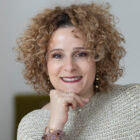The importance of networks for positive change
“Liberté, égalité, fraternité!” is a slogan that resonates as strongly today as it did back in 1789 when it was first uttered in revolutionary France. It certainly resonated with me during my student days at the Sorbonne University when I attended lectures detailing the French Revolution. And the slogan served as a source of inspiration for more than 800 practitioners from Foundations and civil society who met in 2019 in Paris to attend the European Foundation Centre’s Annual General Assembly themed as “Liberté, égalité, fraternité and philanthropie”. None of us could have foreseen the challenges that 2020 would bring to all of us and none of us could have predicted how the COVID-19 pandemic would limit our freedom, increase inequalities, and fray the bonds of fraternity worldwide.
Here in Austria these principles are practiced daily by Michael Fembek and the whole team at the Essl Foundation, who every year tirelessly bring together heroes from all corners of the world to showcase at the Zero Project Conference how their projects break down barriers for people with disabilities. The main objective of the Zero Project is to create a world in which currently marginalised people with disabilities can thrive not as “objects” of charity, but rather as people who have the freedom to live in a society that accepts them as individuals and gives them equal rights. These rights are enshrined in the Convention on the Rights of Persons with Disabilities that many governments have ratified, but are failing to genuinely implement. One innovative project which aims to correct this situation is EnableMe, the brainchild of the myHandicap Foundation, an open-source technology platform working to end the isolation of people with disabilities through connectedness, salient information and value-added community services in Germany and Switzerland, and several other countries.
What the Zero Project and the European Foundation Centre have in common is that they are part of an ecosystem which consists of numerous interdependent networks that are working to build a fairer society for all.
The benefits of networks are clearly outlined in an article written by Barry Knight, “What makes a strong ecosystem of support to philanthropy”, and another by Benjamin Bellegy, “Unlocking Philanthropy’s Potential. While there are multiple ways to define networks, I personally prefer the definition that refers to them as formal organisations, with membership structures and core staff, who deliver services to members and seek their input in shaping the network’s strategy and governance. These networks are usually led by experienced conveners, thinkers and doers like the great, Delphine Moralis, CEO of the European Foundation Centre.
In a world where the boundaries between the business and public sectors, and philanthropy, are becoming increasingly blurred, networks are more vital than ever in promoting collaboration, collective action, avoiding the duplication of efforts and in sharing best practices.
The Disability Thematic Network was set up by the European Foundation Centre as “ an open forum for philanthropic organisations to exchange, learn and connect about any issue related to disability with an eye to mainstreaming disability within their work and programmes”. As member of the network, I learned about the wonderful work of Fondazione Banca del Monte di Lucca and Fundacion ONCE in aiding people with disabilities to enjoy their rights to experience the arts and culture in Italy and Spain. I learned how the Nepalese government endorsed a country-wide Disability Prevention and Rehabilitation Program (DPRP) to facilitate access to adequate and affordable health services in Nepal for people with disabilities, through the work of the Karuna Foundation. I learned how the Sabanci Foundation turned a page for people with disabilities and women in their successful projects in Turkey.
In addition to peer-to-peer learning, being a part of a network makes it quicker to generate knowledge and data. One key example of this produced by the Disability Thematic Network, is a survey on how foundations include people with disabilities in their projects, and a more topical publication on how to make events accessible.
An immediate example to illustrate the meaning of “collective action” is the coming together of the MasterCard Foundation, the Bill and Melinda Gates Foundation and the Wellcome Trust to set up the “Speed Development and Access to Therapies for COVID-19” initiative. Another benefit of being part of a network is the speed with which the European Foundation Centre drew on its members to document their immediate response to COVID-19.
Another consortium of donors, supported by Fondation CHANEL who aspire for “better collaboration between donors, civil society and public actors to advance gender equality”, responded to the COVID-19 crisis by focusing on the plight of women and creating the Alliance for Women in Europe. Finally, in the UK where the migrant communities were the worst affected by the pandemic, The Barrow Cadbury Trust and The National Lottery Community Fund chose to work together, and jointly distribute COVID-19 emergency response funding to the migration charity sector.
When members of DAFNE and the European Foundation Centre expressed their collective voice by issuing the “European Philanthropy Statement on COVID-19”, it was a clear sign to civil society that the boundaries are coming down between grantees and grantors.
I can cite numerous examples to illustrate the benefits of working through networks but I prefer to leave you with the statement of Kerstin Tebbé, Founder of Collective Mind, “that funders work with and through networks because they can solve these problems by providing fit-for-purpose models and approaches”.
It would not have been possible to write this blog without the inspiration of Letizia Manzoni, Michael Fembek, Lourdes Marquez de la Calleja, Annet Van den Hoek, Deniz Başkan, Özen Pulat, Tara Doheny, and all the members of the Disability Thematic Network whom I cherish.
Portrait photo credit: Marlene Froehlich, Luxundlumen.com
Authors

Senior Manager International Partnerships, Light for the World